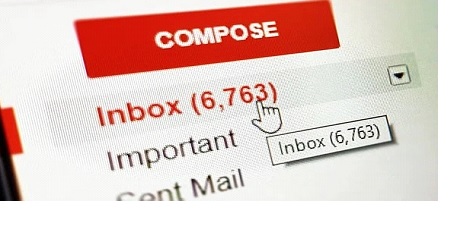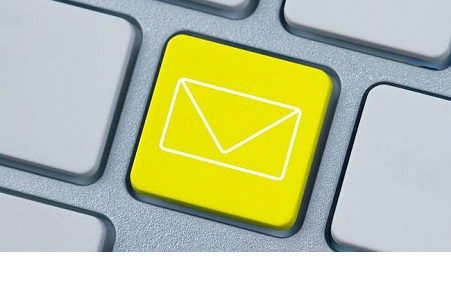25 Years Since Hotmail Launched
July 4th is, of course, the day when Americans celebrate the Declaration of Independence signed in 1776, but this coming July 4th 2021 will herald another anniversary – 25 years from the launch of Hotmail. Originally called HoTMaiL, with the emphasis on HTML, it was one of the first webmail services – along with Rocketmail (Yahoo). If you were a PC user in the 1990s, Hotmail was synonymous with email. Its popularity soared, particularly after being acquired by MSN in 1997. There were around 40 million users by 1997 – massive numbers in those early days of the internet revolution.
And yet, for readers of a certain age, Hotmail will mean nothing at all. It has ceased to exist, of course, after Microsoft decided to rebrand it within the Outlook family. But it’s difficult to stress just how important Hotmail was and the legacy it left. Among other things, it ushered in the era of free email. More importantly, it changed the course of Microsoft Windows and laid the groundwork for what would become Microsoft Azure.
But how has email changed since those wild days of the 1990s? It’s an interesting question, especially given that many of the fundamentals remain the same. But there have been many changes, both in how email functions and what it represents.
Perception of email’s importance has changed
Back in 1997 when receiving an email from a friend to your Hotmail account, you may have been excited, patiently waiting for the contents of the email to download as your dial-up internet connection clunked along slowly. Today, of course, receiving an email is old hat. It might be something important for your boss, but it’s equally likely to be something to ignore, an inconvenience.
Indeed, there has been a lot written on how email overwhelms us. Some of this is put down to what was then called the Blackberry revolution, which was later replaced by the Android and iOS smartphones of today. If you receive an email today, you are assumed to, at the very least, know it is there almost instantly. There is no hiding behind the claim of being “out of office”.
Some call for an end to email culture
Some have taken this further. Cal Newport, the New Yorker writer and, let’s say, leading alternative voice on tech in the workplace, has called for a “World Without Email”, the title of his new book. Newport is not the first to claim email is overwhelming, although to be fair, email is used as a broader byword for all types of communicative technology – Skype, WhatsApp, Teams, Zoom, and so on.

But when it comes to how email has changed functionally since the days of Hotmail, there are some that maintain that the changes to how email works help solve the problems of how it can overwhelm us. Hotmail’s successor, Outlook, and its supplanter, Gmail, both have had a lot of changes from their original incarnations, and their proponents will tell you that they make email smarter and faster, while simultaneously giving your more control.
Spike has reimagined email
And yet, there are some who want to reimagine email completely and to make improvements on both Gmail and Outlook, while not dismissing their uses outright. Spike, for example, is considered the best Gmail client for Windows users, solving, among other issues, the problem of the former’s lack of dedicated desktop client for Windows.
Spike goes a bit further, however. It wants to streamline the other clutter cited by Cal Newport and others, integrating email and chat, for instance. The idea, one supposes, is that you can one day jettison Outlook, Gmail, Slack, WhatsApp and the rest, having the best parts of everything under one roof.
And that gets to the heart of what we want to say here. It’s fashionable for thinkers like Cal Newport to talk about the end of email; 25 years after Hotmail arrived on the scene. But that also assumes email has reached an endpoint in its evolution – it hasn’t. Saying as such would be as ludicrous as saying cinema reached its endpoint in the 1920s when silent movies were replaced by ‘talkies’.
Companies like Spike and others believe that the status quo with email from Microsoft and Google is not good enough, and they openly acknowledge the point that it can be overwhelming in its present state. But the attitude they have taken is to improve email, not dismiss it. Consider it like a car company faced with the news that gas-guzzling vehicles damage the environment: you don’t stop building cars; you build electric once.
Twenty-five years from now, when Hotmail’s launch has a 50-year anniversary, it’s a fair assumption that email will still be with us, albeit something more akin to Spike’s vision of a smarter collaborative tool that filters out all the unnecessary stuff. Still, we don’t know what it will look like. But you can assume it will look very different from the HoTMaiL accounts of 1996 that put us on the road to mass-consumer free email of today.
Related posts
Sidebar
Recent Posts
The Rise of Legal Tech Startups: What Law Firms Need to Know
Introduction The legal profession, often rooted in tradition and resistant to change, faces a technological revolution. Legal tech startups are…
Shiba Inu vs. Dogecoin: The Battle of the Meme Coins
In the realm of cryptocurrency, there has been an ongoing battle between two popular meme coins, Shiba Inu and Dogecoin….




Review 25 Years Since Hotmail Launched: How Email Has Changed.